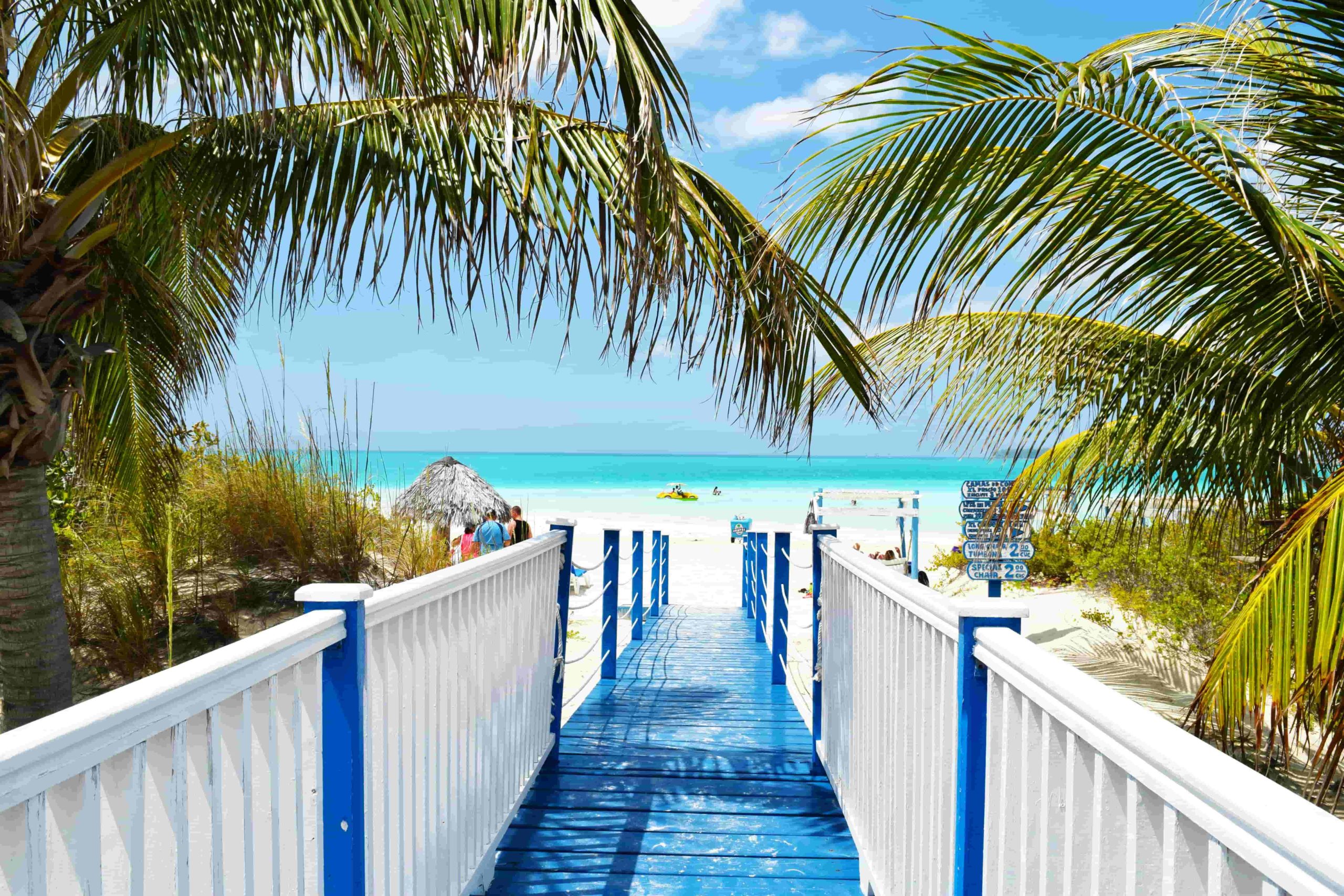When Darian Kelly walked into a new construction sales office as a first-time homebuyer five years ago, a simple question about community demographics led to an uncomfortable silence. “...
How to Become a Vacation Rental & Airbnb Manager in 7 Steps




Are you looking for a lucrative and high-demand opportunity? Learning how to become an Airbnb property manager might be your golden ticket. Airbnb listings exist in over 100,000 cities globally, with more than five million hosts worldwide.
With such a high demand, becoming an Airbnb manager offers a treasure trove of benefits, from flexible working hours to substantial income potential.
Plus, with the growing popularity of short-term rentals, there’s a steady demand for savvy managers. It’s a role that combines the excitement of entrepreneurship with the stability of a high-demand market.
However, venturing into Airbnb management is not without challenges. The learning curve can be steep, but it can be well worth it. In this article, you’ll learn all the steps on how to become an Airbnb manager.
Key Takeaways
- As an Airbnb or vacation rental manager, you oversee the day-to-day operations of short-term rental properties.
- To become an Airbnb property manager, you’ll need to develop a sound business plan in advance.
- You must learn how to prospect new clients for your Airbnb or vacation rental management business.
- Learning how to become a short-term rental property manager also requires knowledge of legal compliance, clear policies, and team building.
- While not always required, having a real estate license can set your Airbnb management business apart from competitors.
What Does an Airbnb or Vacation Rental Manager Do?
An Airbnb or vacation rental manager oversees the day-to-day operations and management of short-term rental properties. Their general responsibilities include ensuring the properties are well-maintained, managing bookings, and providing a high-quality experience for guests.
They handle guest communications, coordinate cleanings, and often manage financial aspects such as pricing and budgeting. The goal is to maximize occupancy rates and ensure guest satisfaction, while also maintaining the profitability of the properties they manage.
Step 1 – Develop a Business Plan
To develop a business plan for becoming a vacation rental and Airbnb manager, you’ll need to outline several key components to ensure your business is well-structured and prepared to enter the market. This includes:
Market Analysis and Competitive Landscape
If you want to learn how to get into Airbnb management, you’ll need an understanding of market analysis and the competitive landscape.
Begin by conducting a thorough market analysis to understand the demand for vacation rentals in your target area. You can achieve this by researching the average occupancy rates, seasonal trends, and pricing strategies.
Services and Operations Plan
Detail the range of services you will offer to property owners, which might include property listing management, price optimization, guest communication, cleaning and maintenance coordination, and legal compliance.
Each service should be clearly defined with the processes you intend to implement to ensure smooth operations. Outline your approach to managing bookings across various platforms (e.g., Airbnb, VRBO, direct bookings) and how you will handle guest interactions.
Marketing and Sales Strategy
Your marketing strategy should clearly define how you plan to acquire both property owners and attract guests to the listings you manage. This might include digital marketing efforts such as SEO, content marketing, and social media engagement.
Financial Plan and Projections
This section will map out the financial aspects of your business, including startup costs, ongoing operational expenses, and revenue streams.
Break down the cost structure for services you’ll provide, and outline your pricing model, whether it’s a percentage of rental income, a fixed fee per booking, or a tiered pricing structure based on the level of service provided.
It’s best to provide detailed financial projections for at least the first three years, which should include forecasted income statements, cash flow statements, and balance sheets.
Regulatory Compliance and Risk Management
Address the legal and regulatory aspects of managing vacation rentals in your chosen location. This includes obtaining necessary licenses and permits, understanding local zoning laws, and ensuring compliance with any regional short-term rental regulations.
Step 2 – Prospect New Clients
One of the key steps to learning how to manage Airbnb without owning property is familiarizing yourself with client prospecting.
Prospecting new clients involves identifying potential property owners who could benefit from your management services. Start by building a database of property owners in your target area using online real estate platforms, county property records, and networking events.
Additionally, you should implement direct outreach strategies such as email campaigns, cold calling, and direct mail to introduce your services. Also, develop relationships by offering free or discounted services during a trial period to showcase the benefits of your management.
Also, attend local real estate and tourism events to network with property owners and other industry professionals. Consider partnerships with local businesses or real estate agents to gain referrals and to get an idea on how to manage Airbnb properties for others.
Step 3 – Complete the Necessary Legal Requirements
Want to know how to become a property manager for Airbnb while operating within the law?
Ensuring your business complies with local, state, and federal regulations is critical. This step includes registering your business, obtaining a business license, and ensuring compliance with any specific laws governing vacation rentals in your area.
You may also need to register for taxes and understand the implications of managing properties that may not be owned by you. Consulting with a lawyer who specializes in real estate or business law can help ensure that you cover all legal bases.
Step 4 – Create Policies, Procedures, and Workflows
Familiarizing yourself with business policies, procedures, and workflows is a great way to learn how to start an Airbnb management company.
Establishing clear policies, procedures, and workflows is important for the smooth operation of your business. Develop policies that cover everything from property maintenance and emergency handling to guest check-in/out processes and dispute resolution.
If you’re working with a team, you should detail the steps they must follow in various scenarios to ensure consistency and efficiency. Use software tools to help manage these workflows, track progress, and maintain documentation.
Step 5 – Build a Team Around You
Knowing how to become a short-term rental property manager requires an understanding of teamwork.
As your Airbnb or vacation rental business grows, you’ll need a reliable team to handle various tasks. Start by identifying key roles such as customer service representatives, property maintenance personnel, cleaners, and perhaps a marketing specialist.
Only hire individuals who share your vision and have relevant experience, especially in hospitality, real estate, or customer service. Also, provide training to ensure they understand your business’s procedures and values.
Step 6 – Launch a Website and Start Marketing Initiatives
A professional website serves as the central hub for your Airbnb or vocational rental business online. It should provide information about your services, display property listings, and offer an easy way for clients to contact you.
When you launch your website, pair it with a strong marketing campaign that might include social media advertising, content marketing (blogs, articles, videos), and email marketing to draw in both property owners and potential guests.
Step 7 – Automate Repetitive Tasks
Automating repetitive tasks can significantly increase efficiency and reduce errors. Use property management software to automate booking and scheduling, guest communication, pricing updates, and financial reporting.
How Much Do Airbnb & Vacation Rental Managers Earn?
Now that you’ve gained an understanding on how to start a vacation rental management business, you may want to delve into the return on investment you can get from this opportunity.
Airbnb and vacation rental managers’ earnings can vary widely based on location, property type, and market conditions. On average, Airbnb managers earn about 20% to 30% of the rental fee.
In addition to the management fees, Airbnb managers may also charge initial setup fees, which can range from free to about $300. Earnings can be substantial, especially in high-demand areas such as Los Angeles, New York City, and Austin.
Do You Need Any Qualifications or Licenses To Be an Airbnb Property Manager?
In many states, a license is required to manage long-term rentals, with several states mandating a specific property management license.
When it comes to short-term rental management, the regulations are less clear. Most U.S. states don’t mandate state-level licenses for short-term rental managers. The decision is often left to local authorities.
Before becoming an Airbnb manager, research local laws and regulations regarding property management. This ensures you operate within legal boundaries and avoid potential issues.
Despite the lack of mandatory licensing in many areas, it’s still a good idea to obtain a real estate license once you’ve learned how to be an Airbnb property manager. Having one can distinguish you from competitors.
Bottom Line
The Airbnb and vacation rental management market is hot right now, especially in certain cities and metros. By understanding the benefits, challenges, and necessary preparations, you should be well-equipped to embark on this rewarding and lucrative journey.
Similar Articles
Explore similar articles from Our Team of Experts.


TYSONS, Va., Oct. 08, 2024 (GLOBE NEWSWIRE) — Park Hotels & Resorts Inc. (“Park”) (NYSE: PK) is pleased to announce that the Waldorf Astoria Orlando hotel has been ranked 9th i...


Remember when buying a house meant squirreling away a massive down payment, begging a bank for a mortgage, and crossing your fingers? Those days aren’t exactly over, but there’s ...


The traditional method of finding a real estate agent has long been plagued by information asymmetry and misalignment of incentives. Redy is changing this dynamic by creating a marketplace w...


TORONTO, Aug. 26, 2024 (GLOBE NEWSWIRE) — Terra Firma Capital Corporation (“TFCC” or the “Company”) is pleased to announce six new Land Banking investments in the US (the “In...




